#biomed
Text
Because I'm curious:
Please rb for greater sample size!
#tumblr polls#stem#wistem#chemistry#biology#physics#biomed#biochem#engineering#math#mathematics#science#i am very curious because i tutor and i get a lot of students who care but didnt get good instruction#and i also get students who just want to pass the class and move on with life#so do you enjoy STEM? do you like science at all?
798 notes
·
View notes
Text
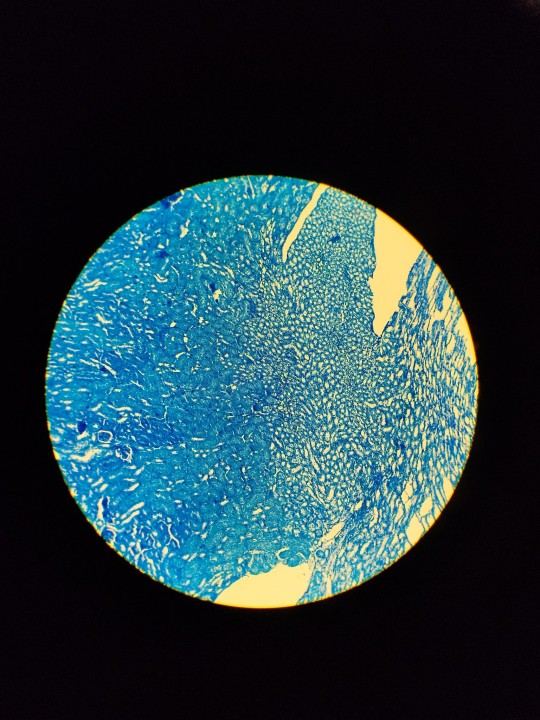


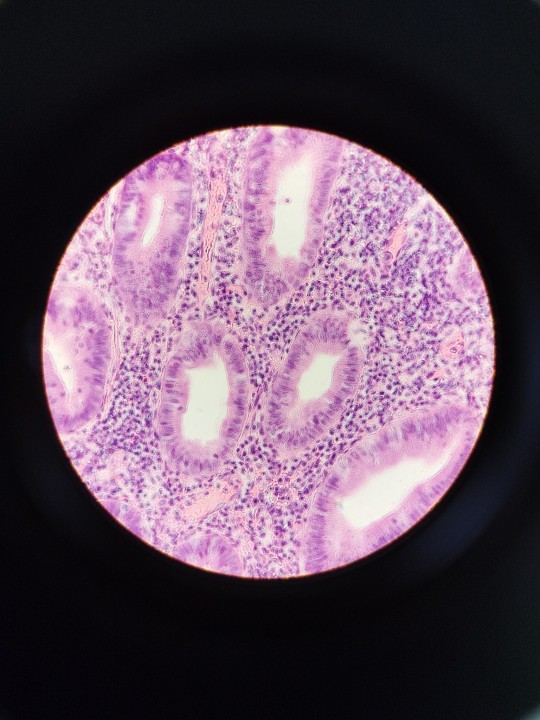
Some slides we made in class this week. Histology's been treating me well.
45 notes
·
View notes
Text
FORGOT TO UPDATE ON THE JOJO T-CELL POSTER i got 17/20 on it and my lecturer said it showed a great understanding of the material and a clear communication of it hehehhehehehegdhdgxhs
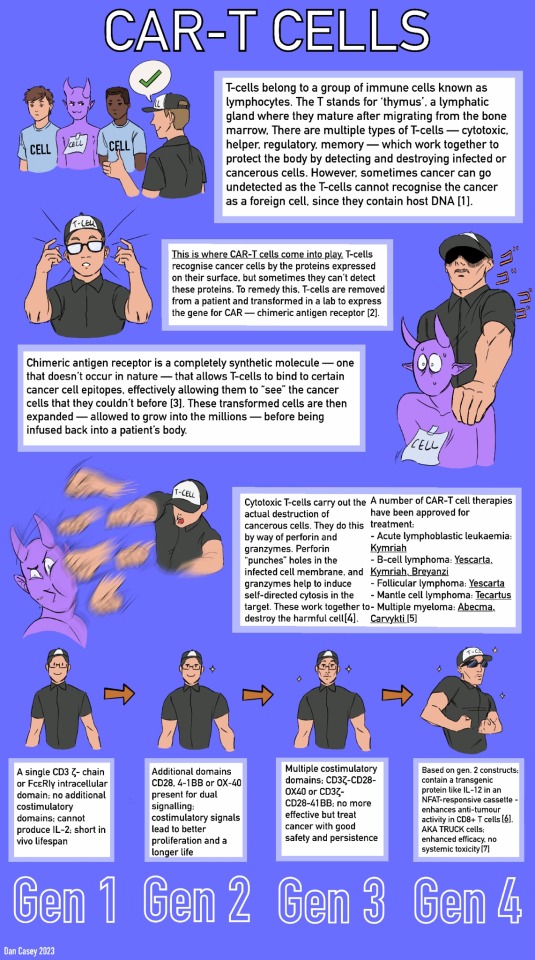
**the sentence before citation 4 should say apoptosis not cytosis, i was very tired when i finished it;;;
14 notes
·
View notes
Text
I bring a 'is it good? probably not, but it's done' mentality to my assignments that my first year classmates find baffling
#Uni shenanigans#Biomed#listen this is my third year now to their first and im all out of fcks bbyyyy we did those first 2 in a pandemic#and let me tell you something pandemic uni was a fcking mess esp with all those strikes i do not care anymore#just be glad i did my assignment instead of going on strike too cus i can guarantee im more sleep deprived and broke than you#its foundation year it dont matter as long as i pass
11 notes
·
View notes
Text
me, a first year in biomedical research masters: *looks at scientific article**googles "how to read"*
2 notes
·
View notes
Text
Little algae organism able to swim around and look for food but was a little lost 🤣💚🦠
#adorable#animals#vet tech#vet nurse#sciences#algae#algae bloom#green algae#science#science girl#biomedical science#biomed#biomedical#biomedicine#lab#laboratory#microscope#microscopic#cell biology#biology#microbiology
7 notes
·
View notes
Text
crying over a 97% on a test is a new low💀
3 notes
·
View notes
Text
Links para estudo da matéria de biofísica ☺️🤍
LIC e LEC -
youtube
Membrana Plasmática -
youtube
Transporte através da membrana Plasmática -
youtube
Potencial de ação -
youtube
Potencial de equilíbrio -
youtube
Potencial de repouso -
youtube
Hipo e hipernatremia -
youtube
hipocalemia -
youtube
Hipercalemia -
youtube
Homeostase -
youtube
8 notes
·
View notes
Text
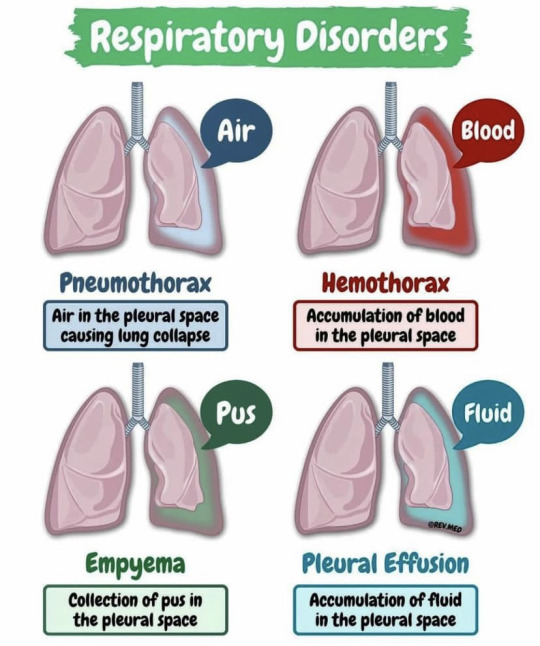
#respiratory health#medicalschool#medical students#biology#biology is fun#biology is cool#biotech#biomed#health#dontsmoke#stop smoking#quitsmoking#Respiratorydisorders#respiratory system
20 notes
·
View notes
Text
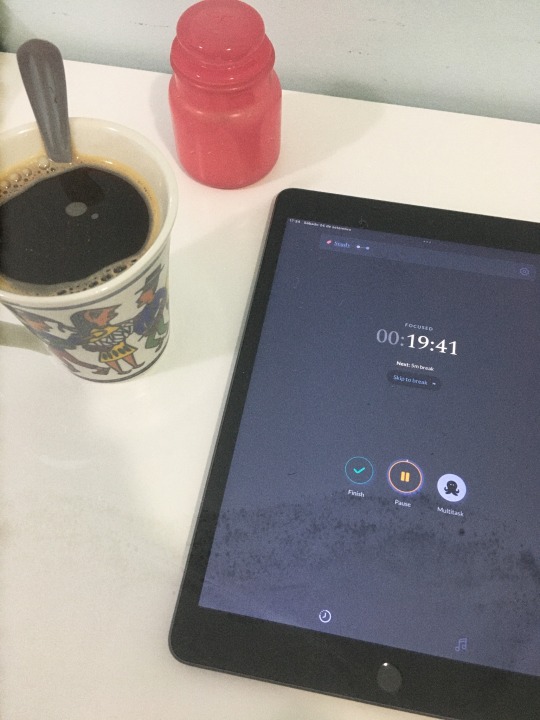

24.09.2022
I can't believe I finally have an iPad 😃
Also, I am starting to feel a little bit less energized about showing up to classes, but that's ok (or so I want it to be).
24 notes
·
View notes
Note
hey!! sorry if this ask is random, (ive sent you an ask before, but idk if you remember :P) i just wanted to ask about biomed as a subject in uni since im planning on pursuing it too!!
what kinds of things do you learn?? (the course syllabus is so vague. so vague) like i see topics like musculoskeletal system and chemical biomed but what EXACTLY goes in it?
any textbooks/resources that you’d recommend?? every college recommends like 10 books of their own and there’s so many online but which ones are actually useful??
on that note, any place i can get secondhand textbooks from??
some tips you absolutely HAVE to know as a biomed student?
if you’ve reached there, how do you plan for a dissertation/thesis paper? Just an outline of the steps if you could :D
thanks so much for your time and support and hope you have a great day/night!!
Hi!! unfortunately tely I have the memory of a fish unless you're in my face all the time, so I dont remember you but you are always welcome in my inbox regardless!!
there quite a lot to unpack in this so I might make it into several posts for the sake of length but I'll tag you in each part!
what kinds of things do you learn?? (the course syllabus is so vague. so vague) like i see topics like musculoskeletal system and chemical biomed but what EXACTLY goes in it?
this is a good question, biomed is an incredibly broad degree when it comes to science, which is what makes biomed graduates desirable in loads of different fields. I can give you a quick breakdown of the variety of modules I did over the years to show you how!!
Anatomy and physiology :
Does what it says on the tin, we looked at different parts of the anatomy more specifically different organs systems and looked at their normal functions in a healthy person as well as possible pathologies/diseases of the systems eg different lung diseases when we did respiratory systems etc. the diseases ranged from those that can be inherited to those that you develop due to lifestyle or those caught by pathogens so it covered a huge amount.
Research skills / lab skills:
The greatest opportunity you will get to play with lab equipment. The professors will set up series of investigations you can do so you can get a feel for how different equipment in the lab works since university will have a lot more specialist equipment than you’re used to - this will definitely come in hand if you take on a practical dissertation project as it will build your confidence with the machines!
Biochemistry :
A lot of people on my course found this the hardest of all the modules we studied, since it has a lot more chemistry compared to the rest of the course which is heavily biology focused. In biomchem we looks at molecular structures and thier interactions with each other, biological molecules like water, glucose, lipids etc, to understand why these chemicals have certain properties and how the human body is adapted to utilise them.
Cell biology:
Another straight forward one - where anatomy and physiology looked at organs and organ systems, cell biology is focused on the function of individual cells and how they’re adapted to their functions. There’s a lot more details to the internal structure of the cell and how they join together and communicate etc
As the years go on the modules will split into more specialised subjects but still build on the more basic ones I explained above:
Tissue science /histology / histopathology :
Like cell biology, you study cells and tissues, but you also look at diseases - this includes things like cancer and the physical changes that cells undergo as they become tumours and you look at the grading /staging system for cancers. You also look at a lot of autoimmune disorders - diseases where the body is attacking itself - and see how that effects tissue structure. You are likely to get lab sessions looking at diseased tissues.
Infection science / immunity :
All diseases under the sun, with a bit of a heavier focus on those you get from pathogens. You’ll look at several examples for each type, viral, bacterial, fungal etc and look at the effect they have on tissues, organs and the person as a whole - you are likely to get case studies where they tell you the patients symptoms and some test results and ask for a possible diagnosis. A lot of time spent looking at the immune system in more detail - there is always more detail
Medicinal chemistry :
This topic was all about the body and drug interactions so this is where doing biochemistry really helped as we looked at functional groups on drugs and how some were more or less suited for the compound etc. we looked at the process of clinical trials, formulation of drugs, played around with exploring their 3D structure with cool software - very different from the other topics but just as interesting for sure
Blood science / haematology:
Probably one of my favourites because my professor was amazing but it is exactly what it says. We study the blood from how the cells form (including red and white blood cells) disorders of the blood like sickle cell, leukaemia etc, how the shape of cells is affected by the different diseases etc etc. we also spend a lot of time looking at blood testing and lab results since a lot of people in biomed will go on to work in hospital labs - this is one of the more relevant topics towards career progression if you want to avoid further studies. Because we look at lab reports you’ll also get a fair amount of case studies in this topic too.
Medical genetics :
I took this as an optional module so you may not (or at least not go into as much detail) on this but medical genetics was spent looking at DNA and chromosomes and how inherited disorders can arise as well as the importance of coding and non-coding regions of DNA and gene therapy
Parasitology:
Another optional module, but covered briefly in infection science, it goes into parasites in a lot more detail - this different types, how they spread, where they spread, the symptoms, the treatment etc - not for the faint of heart there are many a picture of worms in places where there shouldn’t be worms that are permanently seared into my brain
Overall the modules are broad but there is definite overlap between each one and things you learn in one module you may come across in another. All of them were very interesting and you may study them across multiple years (but it would be the advanced syllabus the following year) so your knowledge on it will become well rounded as it gradually builds.
This is pretty long so I’ll answer your thesis and textbook questions in a second post today! I hope this helped and feel free to ask more questions if you like.
12 notes
·
View notes
Photo

Posté @conceitobiomedico Les cinq branches principales du nerf facial sont : oreille, marginal, mâchoire, oral, zygomatique et temporel. Ces branches irritent tous les muscles d'expression faciale. 😬La branche temporaire du nerf facial (VII) émerge de la marge supérieure de la glande parotide et traverse l'arc zygomatique pour alimenter les muscles ariaux supérieurs et antérieurs, l'abdomen frontal du muscle occipitofrontal ; et la partie supérieure de t il muscle l'orbiculaire de l'œil. 😬La branche zygomatique du nerf facial (VII) suit deux ou trois branches au-dessus et surtout au-dessous de l'œil pour alimenter la partie inférieure du muscle orbiculaire de l'œil et les autres muscles faciaux sous l'orbite. 😬La branche orale du nerf facial (VII) suit externement le muscle de la corne pour alimenter ce muscle et les muscles de la lèvre supérieure (parties supérieures du muscle orbiculaire de la bouche et fibres inférieures du muscle lifter de la lèvre inférieure). 😬La branche marginale de la mâchoire du nerf facial (VII) au-dessus des muscles du risotto et de la lèvre inférieure et du menton. Il émerge de la marge inférieure de la glande parotide et traverse la marge inférieure profondément de la mâchoire dans le muscle platisma jusqu'à ce qu'il atteigne le visage. 😬La branche cervicale du nerf facial (VII) suit vers l'intérieur de la marge inférieure de la glande parotide puis vers la mâchoire pour alimenter le muscle platisma. Reposter @enfermagemfoco #hematologia #imunologia #biomedicina #biomed #biomedicinaestetica #sangue #anatomia #fisio #fisioterapia #biologiacelular #biologia #biology #enfermagemporamor #enfermagem #biomedicinaporamor #medicinaporamor #medicine #bioquimica #resumos #amorporpapelaria #tecnicoemenfermagem #estetica #faculdade #canetas #laboratorio #urinalise #analisesclinicas https://www.instagram.com/p/CgKL38rK7xC/?igshid=NGJjMDIxMWI=
#hematologia#imunologia#biomedicina#biomed#biomedicinaestetica#sangue#anatomia#fisio#fisioterapia#biologiacelular#biologia#biology#enfermagemporamor#enfermagem#biomedicinaporamor#medicinaporamor#medicine#bioquimica#resumos#amorporpapelaria#tecnicoemenfermagem#estetica#faculdade#canetas#laboratorio#urinalise#analisesclinicas
7 notes
·
View notes
Text
23.5.2022
New week again. I’ve always been more productive in the morning, so starting the week with some early morning studying. I need to revise for my last exam of the semester, which is this Wednesday, and then I have two lectures later today.
Five full days of work last week with no opportunity to rest felt really rough, but it’s practice for the summer again. I’m happy that the lectures and labs are soon over, it almost feels like a vacation to just work. Or to not have a fixed schedule at least, I will try to work on my thesis during summer whenever I have time.
I did start practising German again with Duolingo. I remembered more than I thought I would, so that’s a positive thing. I wish I was actually brave enough to talk or even write in the languages that I’ve studied, that would be the best practice. I tried to suggest weekly conversations in German to my wife, since she has also studied it for years, but she wasn’t too excited about it.
#studyblr#biomed#biomedical laboratory science#uni#university#studying#duolingo#langblr#university student#uni student#own
10 notes
·
View notes
Text
Its 6am I haven't finished my assignment and I still need to wash my hair. I love suffering from the consequences of my own willingly made choices
#Uni shenanigans#Biomed#ace is a mess#i have a sleep headache and my stupid topic is boring so i still dont want to write like fck i dunno man its spectroscopy google it#im also kinda hungry and it might be tinn ed peaches time again damn my head feels weird#guess now i get to experience spring sunrise irl instead of having to google it#i just dont wanna write sht its objectively an easy assignment im just bored and cant motivate myself unforptunately
10 notes
·
View notes
Text

Curiosidades sobre a gravidez
1- O útero pode expandir até 500 vezes o seu tamanho em uma gestação.
2- Ainda no útero, bebês podem sentir alguns sabores como por exemplo alho, temperos e até cenoura.
3- A placenta é um "órgão" criado pelo corpo especialmente para a gestação .
4- Os bebês podem exergar e reagir a alguns luminosidades externas mesmo dentro do útero.
5- O bebê sofre uma pressão que equivale a aproximadamente 2 kg em cada centímetro da cabeça antes do nascimento. Contudo, antes dos pequenos virem ao mundo, o organismo libera um hormônio sedativo no sangue que bloqueia o cérebro de qualquer sensação de dor.
6- Quando a gestante se deita em cima do lado direito, pode haver uma compressão na veia cava, causando mal-estar e elevação da pressão arterial. Como isso não acontece ao se deitar dobre o lado esquerdo, essa é a melhor opção durante a gravidez.
fonte: https://medprev.online/blog/curiosidades/mitos-e-verdades-sobre-gravidez/
2 notes
·
View notes
Text
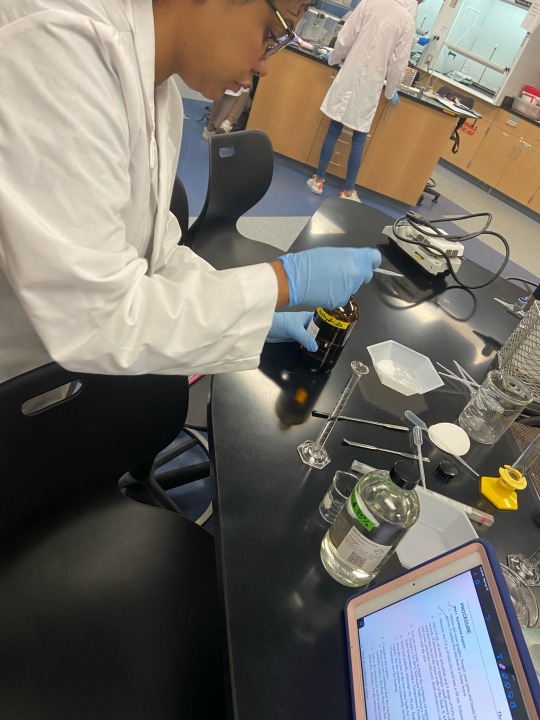
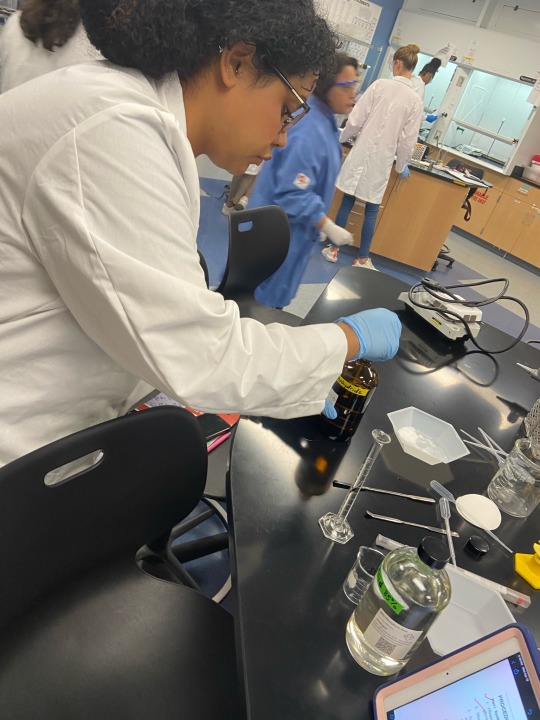

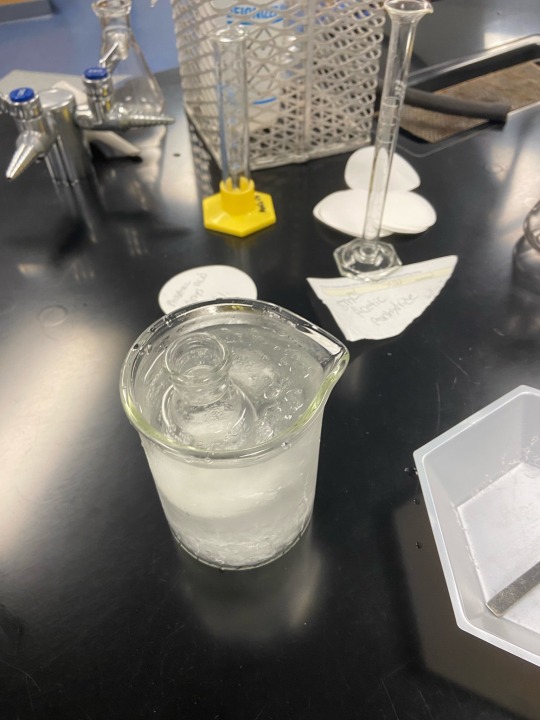
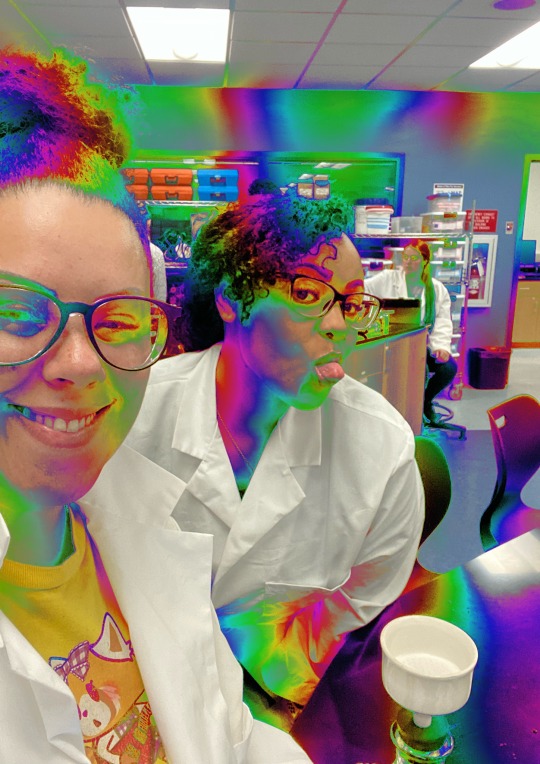


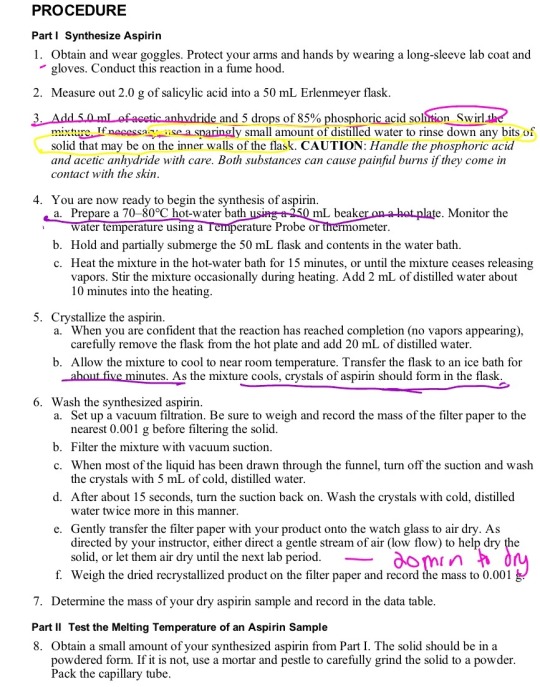
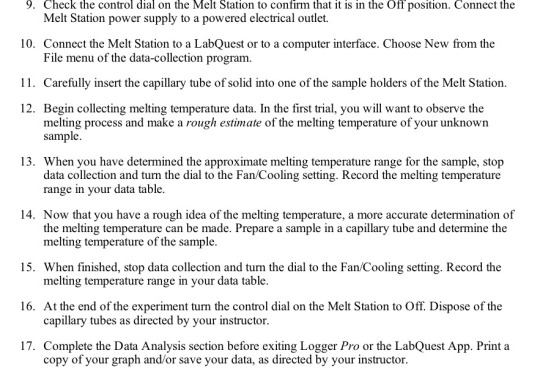
Making aspirin with my bestie Tina! We graduate soon and I’m so excited 💕🥰
#adorable#animal lover#vet tech#vet nurse#artist#lol#friends#bestie#best friends#organic chem#organic chemistry#chemistry#school#college life#college#biomedical sciences#biomed#biomedical student#aspirin#chemicals#vet student#vet med student#vet med life#vet tech life#veterinary world#veterinary technician#future doctors#future doctor#future DVM#Tina
6 notes
·
View notes